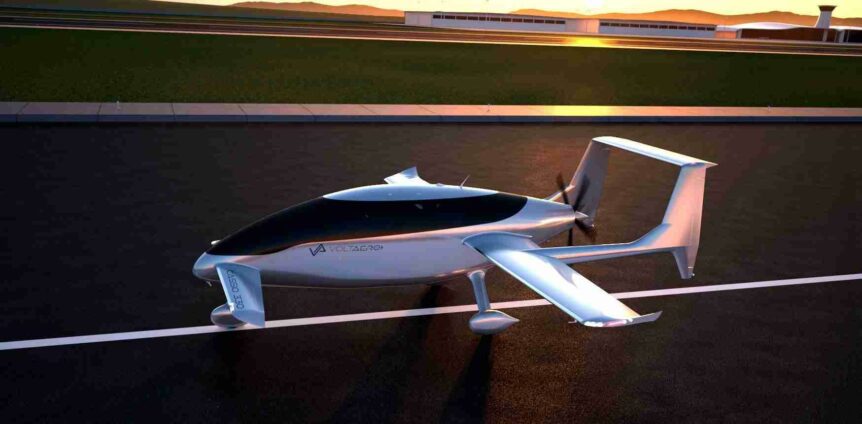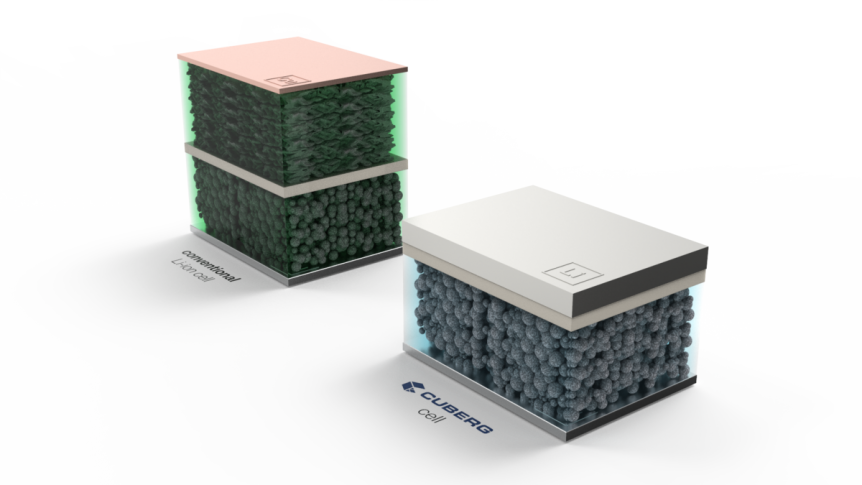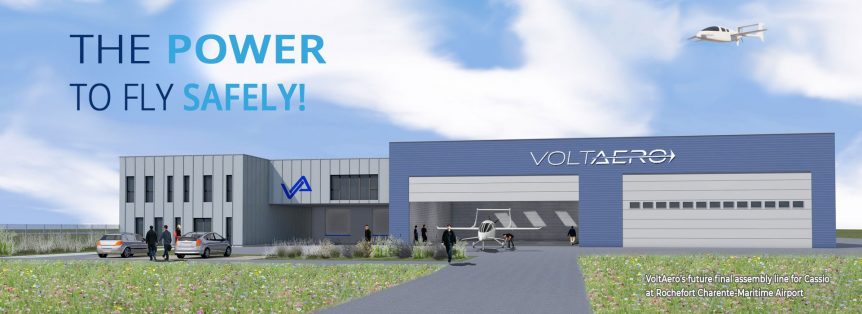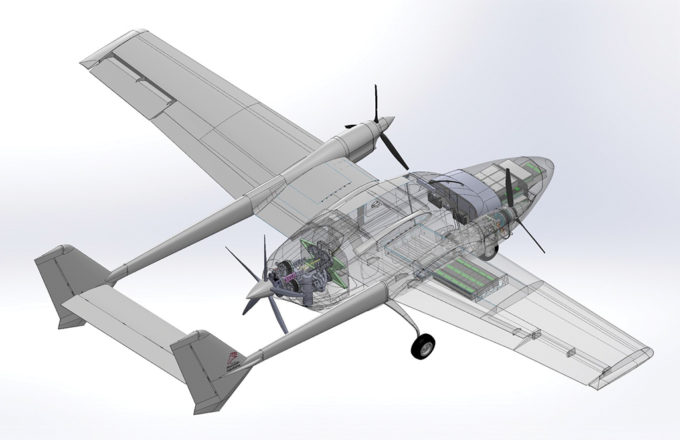A year ago, VoltAero, a French company grown out of Airbus’ early efforts at creating electric aircraft, was test flying a modified Cessna 337 Skymaster. They have made progress from the three motor craft to a range of single-propeller machines with much higher performance – the Cassio. Their pre-prototype mockup has been making the air show and exhibition rounds, moving steadily westward. One Year Ago VoltAero was still promoting their Skymaster derivative, but had been planning on bringing out the first of three similar three-surface aircraft. Dropping the dual Safran 45kilowatt motors of that testbed, the firm went to a single Kawasaki-powered hybrid power system that drives a single five-blade pusher propeller. Jean Botti, former Airbus executive and now CEO of VoltAero, explained the move as a way to lower noise – a significant need for modern aircraft often operating in urban environments. The hybrid system enables the internal combustion (thermal) engine to recharge batteries in flight and act as …
Stable Nickel-rich Cathodes in Lithium Metal Batteries
A battery with 560 Watt-hours per kilogram, a stable long life, and no fires. What’s not to like? Researchers at Helmholtz Institute Ulm (HIU), founded by the Karlsruhe Institute of Technology (KIT) in cooperation with the University of Ulm, have come up with a dual anion, nickel-rich cathode, lithium-metal battery that, although in early stages of development, may point a way forward. Academic journal Joule reports, “High-energy batteries, in particular lithium batteries, are the key to achieve carbon-neutral mobility…. However, it is foreseen that a fully electrified mobility and transportation can only be achieved by the development of batteries employing lithium metal as the negative electrode (anode) while still granting long-term cycling performance and safety.” Safety may be the deciding factor here, especially in electric aircraft. Coupling the lithium metal anode with a nickel rich cathode seems to pay off for the researchers. Along with the dual anion liquid electrolytes, they’ve managed to keep things stable and performing well. Considering …
VoltAero Demonstrates Quiet Flight
At least two Cessna 337s are flying on modified power systems – one with Ampaire in various locations around the world and one in France. VoltAero’s French Cessna push-pull twin has been turned into a tri-motor, with twin motors sprouting from the front of the craft’s tail booms. Like its American counterpart, VoltAero’s machine is a test bed for the planned power system that will mark its successor. VoltAero reveals its coming aircraft will feature a “barrel”-type arrangement of three 60 kilowatt electric motors ringing a central internal-combustion (thermal) engine. Jean Botti, CEO of VoltAero, explains the motor configuration is well-proven, having flown in the Cassio 1 demonstrator (the Cessna) since October last year. Since then, it’s been flown around a series of airports in France, racking up over 3,000 kilometers (1,864 miles) in 10 hops visiting 11 cities. Later versions of the Cassio design will feature the 330 kW hybrid arrangement of Cassio 1, producing 442 horsepower. Later versions …
VoltAero Has Ambitious Plans
VoltAero is a small French company that might succeed in electric flight where bigger firms have failed. Its hybrid-electric system marks an innovative path to quiet flight. Airbus ventured into electric aviation with a four-motor conversion of the Colomban cri-Cri in 2010 and a clean-sheet craft, the E-Fan, a sleek, essentially ducted fan two-seater in 2015. Initially big plans for production of two and four seat variants bloomed – then withered. Airbus dropped plans for the personal electric airplane market and instead concentrated on at least three versions of Urban Air Mobility devices and a hybrid-electric demonstrator based on a BAE 146 airliner. This last project, the E-Fan X, was canceled recently. Jean Botti was Chief Technology Officer for Airbus, and Didier Esteyne a test pilot for the Cri-Cri and E-Fan. Botti is now CEO of VoltAero: Esteyne its Technical Officer. VoltAero has ambitious plans for its hybrid electric future, and management experience to pull them off. Flying VoltAero’s unique …




